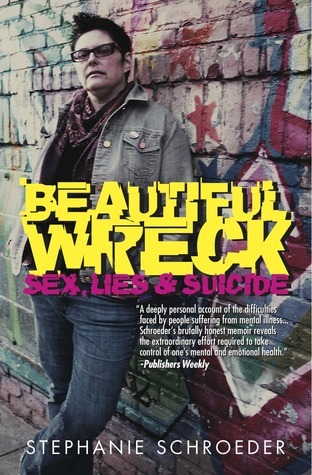
Rum Spring by Yolanda Wallace is the story of Rebecca, an Amish teenager, and Dylan, a girl from mainstream American culture. The novel chronicles Rebecca and Dylan’s romance as it shifts in intensity over several years; it’s also a coming-of-age story that follows Rebecca’s journey toward her decision whether or not to join church and become a member of her Amish community.
I knew very little about Amish culture going into this novel, and I feel that I finished it not only knowing more, but having read a respectful treatment of it that doesn’t harshly judge or take strict sides. Rumspringa is a term in Pennsylvania Dutch for a period in the lives of some Amish teenagers when they temporarily leave their communities to experience the mainstream world. At the end of this period, young Amish people choose whether to join their community as a full-fledged member of the church or to join mainstream society. The conflict of the story revolves around this choice. The love that Rebecca and Dylan share is passionate and deep, evolving from a close friendship, but Rebecca is extremely conflicted about her future. She sees only two choices: be with Dylan and give up any hope of interacting with her family and community for the rest of her life, or reject Dylan, the person she loves most, and live a life with her family but without a partner, forever hiding the fact that she’s a lesbian.
Rebecca’s development as she navigates her own feelings and goals makes up the main story arc, with Dylan’s progress taking a bit of a backseat. I was impressed, though, by how realistically their shifts in self-understanding were addressed. Dylan struck me as pretty transparent the whole time, but Rebecca’s feelings, motivations, and how well she understood them at various times made her more complex and compelling. There was also a sub-plot involving Rebecca’s family that tied nicely into the romance between Rebecca and Dylan.
The only complaint I have with this novel is that the writing was often less subtle than I’d like. There were several instances where I’d understood the implication of something that took place – for example, Rebecca and Dylan shifting away from each other in the front seat of a car – and then the narrative went on to explain that this motion symbolized the rift that was growing between them emotionally. Sometimes the dialogue was like this as well: a little too expository, the characters saying things they’d never say to one another for the sake of giving the reader information. This didn’t mar my enjoyment too much, though. I wanted to know what would happen so much that I sped through the book. I thought it tackled a lot of issues respectfully, and although it was sometimes cliched, I came to love the characters and was very satisfied at the end.
[Check out Danika‘s and Anna‘s reviews of Rum Spring as well!]
